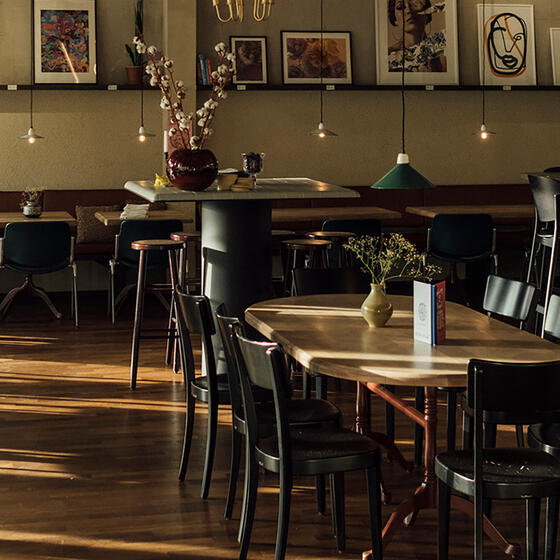For an introduction to the Swiss larder like no other, here are three worthy pit stops across the French-, German- and Italian-speaking regions of this culinarily creative nation
09 March, 2023
In partnership with
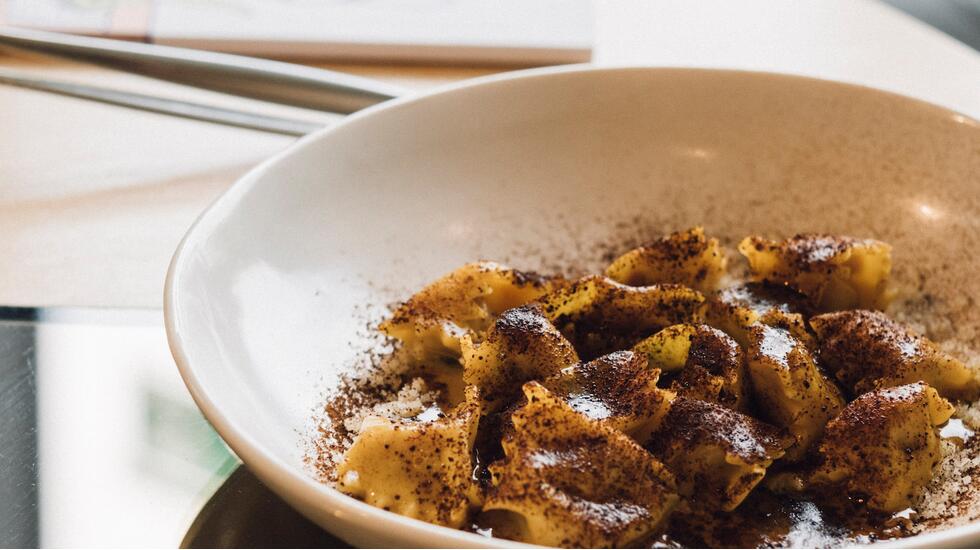
Fondue
might be the classic Swiss dish, but there’s nothing
normal about our first fondue in Switzerland. We’re sitting alongside
damp-haired swimmers at Geneva’s Bains des Pâquis, where students,
international guest workers and lifelong residents flock throughout
the year to linger in the sauna, leap into the lake, tap away on
their laptops and eat the best fondue in town from a café run as a
social cooperative. We aren’t just imbibing gruyère, we’re
absorbing the slightly madcap joie de vivre that drives Swiss
urbanites to eat melted cheese in their sodden swimsuits, be it
December or July. Surrounded by happy, half-naked diners, we
realise we’re in for a true treat, embarking upon a gastronomic
adventure around Switzerland. Because the Swiss appetite is for
decadence tempered with diligence, madness melded with
meticulousness and creativity underpinned by confidence, and it’s
this delicate balance that has given rise to one of Europe’s most
exciting culinary scenes.
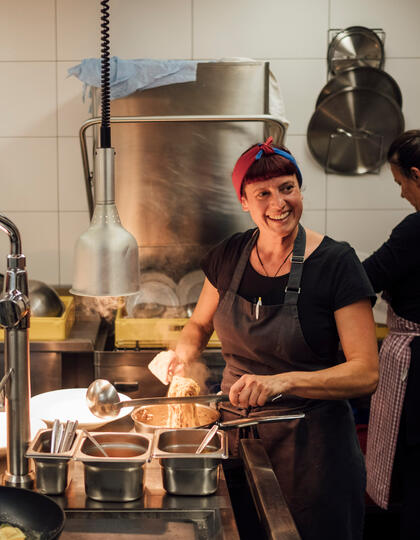
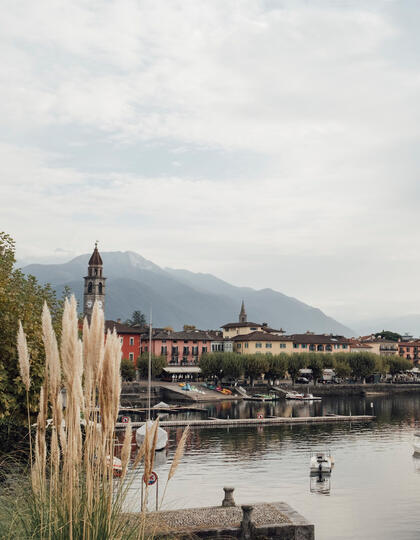
Bisnona restaurant, left, and Ascona in Ticino
canton
Geneva is a city built on big ideas and high
ideals; the natural home of hundreds of NGOs and non-profits that
bring a truly global workforce, energy and flavour to the city. The
official language spoken here is Swiss French, but walking the
neighbourhood of Pâquis we hear Arabic and Amharic murmured around
Mediterranean, South Asian, South American and Middle Eastern food
stalls, and in longstanding Ethiopian and Lebanese restaurants such
as Awash and
Parfums de Beyrouth. Venezuelan chef Andrés Arocena,
who worked his way through high-gastronomy restaurants in San
Sebastián before moving to Geneva, believes that it is the city’s
international character that makes it such a draw for the world’s
best chefs.
“You can find any nationality of food here, so there is an
endless source of inspiration,” he says, as he talks us through the
five-course tasting menu at his Michelin-starred La Micheline. “And
also the most discerning diners in the world. In Geneva, people
support a good idea, but you need to impress them. There are no
second chances.”
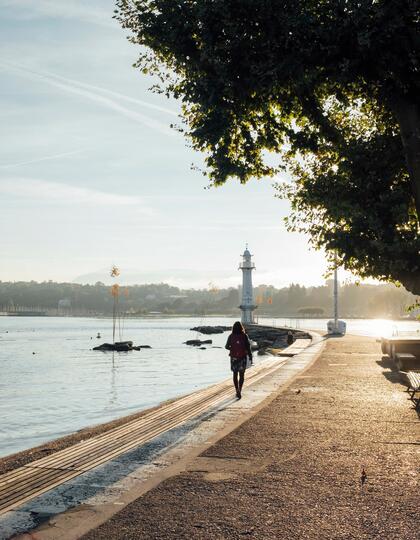
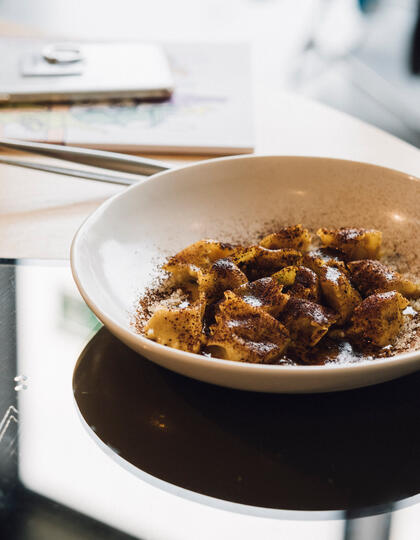
Geneva is home to innovative restaurants including
zero-waste Refettorio, right.
Ideas are the lifeblood of Geneva, and the most buzzed-about
restaurants and cafés in the city aren’t necessarily the ones with
the best menu, but the ones with the boldest sense of purpose. This
is perhaps best typified by Refettorio, a new kind of restaurant and
community space headed by Milanese chef Walter el Nagar, who first
came to Geneva to open a restaurant for the Ritz-Carlton.
Refettorio was founded on a zero-waste and scholarship policy, with
its pioneering (and ambitious) business model offering free dinners
to those in need, paid for by the lunchtime service. “I came here
to open a Ritz-Carlton restaurant, but to me, Geneva is the very
opposite of the snobbishness, waste and exclusivity found at
high-end restaurants,” says el Nagar. “Geneva is about diplomacy,
human rights, science, possibilities and humanitarianism, and I
want to work in a gastronomic enterprise that reflects these
ideals.” This is high-concept dining, both in the menu – heavy on
fermentation, with playful echoes of molecular gastronomy – and the
humanitarian ideals that underpin it, making for the ultimate Swiss
feel-good feast.
Basel is a creative city with heart, but ruled by a heart that knows what it is doing. There is a quiet confidence across the food scene, which goes hand in hand with an imaginative spirit
Swiss German-speaking Basel magically manages to be both a relaxed
and free- spirited university town and a global epicentre for art,
tech and architecture. It’s this combination of efficiency and
enterprise married with a love for life that has flavoured the
city’s gastronomic scene. A wander around the expansive, brutalist,
purpose-built Markthalle is a good place to start. The Ukrainian
food stall has the longest queue. A new arrival, rapidly welcomed
into the space after the outbreak of the war in Ukraine, it is
where hungry students, tech workers, pharmaceutical company staff
and designers all queue up to buy authentic borscht and
dumplings.
Basel is immediately associated with Art Basel, the
billionaire- baiting interantional art fair, and this spirit of
eagerly championing new ideas seasons everything we eat or drink.
At Sudhaus, a cultural complex housed in the former Warteck
brewery, we devour inventive plant-based dishes at Cantina
Don Camillo while listening to a pleasing mishmash of languages
and accents at surrounding tables, some debating Renaissance
philosophy, others the merits of microdosing. (This is apt: Basel,
not California, is the birthplace of hallucinogenic science; the
first-ever LSD trip was taken here by Albert Hofmann in 1943.)
Everywhere we eat, we notice the city’s taste for innovation. We’re
wowed by the flavours at Mystifry, but also struck by a cork noticeboard
in the corner, where customers have “paid it forward” and
contributed doughnut vouchers for “a recently out queer kid who’s
in need of a sweet treat” or “a solo mum who deserves to feel like
a queen”.
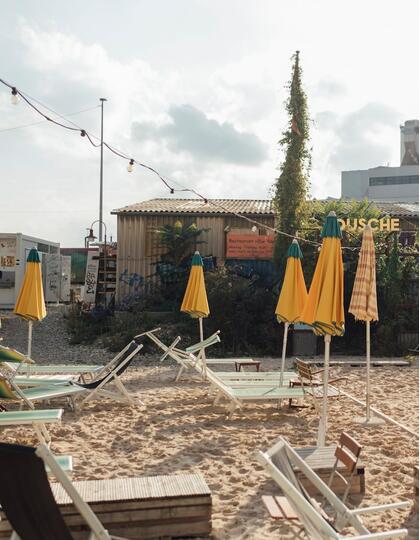
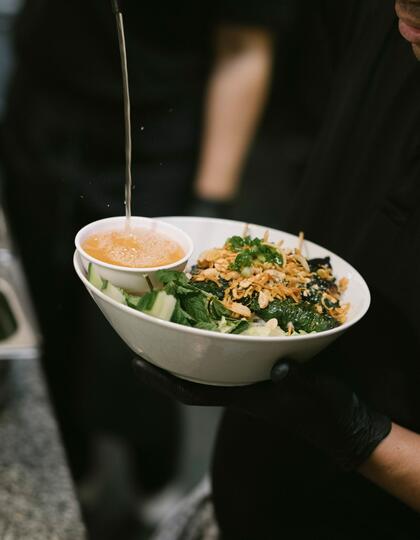
Squadra Violi, left, and lunch at Markethalle.
Later, we’re sipping spritzes on the upper deck of a stranded
ship called the Gannet in Holzpark Klybeck, a surreal harbour district
where various artists’ studios, bars and cultural collectives are
housed in former shipping containers, old boats and wooden shacks.
We’re starting to truly get a taste of Basel – a creative city with
heart, yet ruled by a head that knows exactly what it is doing.
There’s a quiet confidence across the culinary scene here, which
goes hand in hand with an imaginative spirit.
At a pop-up lido beach bar just over the Rhine, we ask Fabio
Salerno of culinary cooperative Squadra Violi, what makes him so open to
experimentation. “It’s not being afraid of failure,” he says. “If
failing doesn’t scare you, there’s no limit to what you can dream
up and create.”
Effortlessly combining fiery Italian passion from the south with
cool Swiss efficiency from the north, the region of Ticino is a highlight of any trip to
Switzerland, and the genteel, cultured, lakeside city of Locarno makes the perfect base from which to explore
it.
Back in the 1920s and 1930s, Europeans migrated here in search
of the good life, building or occupying belle-époque mansions like
the one that today houses the elegant Hotel Villa
Emden, an island retreat that once played host to decadent
parties and is now home to a botanical garden, restaurant and
hotel.
Bohemians flocked here throughout the 20th century, too, drawn
by its mix of Mediterranean and Alpine scenery and ingredients. On
the outskirts of Ascona, another lakeside resort town just around
the headland from Locarno, you’ll find Monte Verità.
Once a hippy commune, it’s now a hotel, restaurant, conference
centre, museum complex and Japanese tea garden, Today, a new
generation of young chefs, producers, winemakers and entrepreneurs
is returning, putting skills learned in the restaurants of Sydney,
London, Paris and beyond into practice with some of the best
natural produce on the planet.
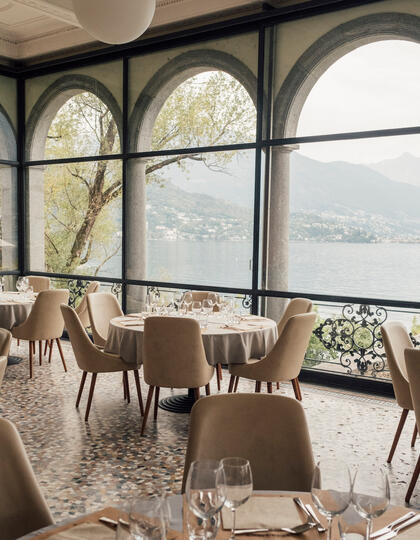
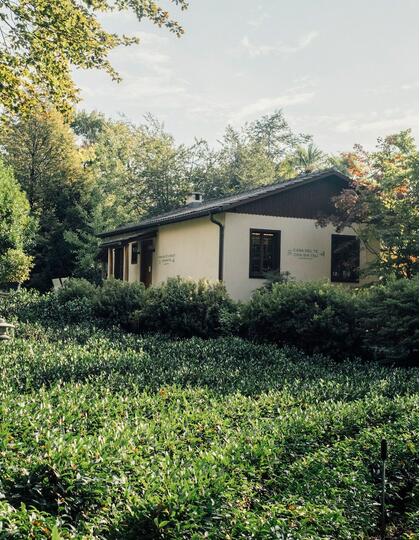
Villa Emden, left, and the Monte Verità plantation.
This is immediately apparent at Osteria Bisnona,
which was set up by four food-obsessed friends.Head chef Kira
Ghidoni worked in the kitchens of hotshot British chefs like Simon
Rogan and Robin Gill, and ran the show at Auckland’s famed The
Grove, before returning home to Ticino. “There is a real energy in
Ticino, with young with young winemakers, chefs, farmers and
producers doing really cool and innovative things: experimenting
with different business models for farms; developing fermentation
businesses. It’s wonderful to feel part of this; to bring what
we’ve learned abroad back to this beautiful corner of the
world.”

Fly direct with SWISS from the UK and Ireland to Switzerland.
The Swiss Travel System covers more than 29,000km with its
extensive public transport network of trains, buses, cable cars and
boats. Book your tailored Swiss city package and get unlimited
travel on public transport with a Swiss Travel Pass at switzerlandtravelcentre.com
Discover Switzerland’s boutique and design hotels, ranging from
interiors-focused city stays to alpine chalets at myswitzerland.com/ accommodations
Visit myswitzerland.com to get a taste of everything
Switzerland has to offer
